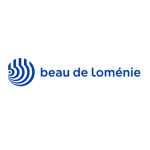The Court of Justice of the European Union (CJEU) dealt with the issue of acceptance of sales services in opposition procedures in the joined cases of C-155/18 and C-158/18 P, Tulliallan Burlington v European Union Intellectual Property Office (EUIPO) and Burlington Fashion.
This case involved UK company Tulliallan Burlington, the owner of London’s Burlington Arcade shopping centre and three UK national and European trademarks registered for, inter alia, “grouping services for third parties of various products enabling customers to view and purchase them conveniently in a range of non-specialised retail outlets” in Class 35.
German company Burlington Fashion had registered international trademarks designating the EU for goods in Classes 3, 14, 18 and 25. The opposition filed by Tulliallan Burlington was rejected before the EUIPO Board of Appeal and the EU General Court.
The General Court dismissed the action brought by Tulliallan Burlington notably because the description of the invoked Class 35 services should, in accordance with the Praktiker (July 2005) judgment, specify each product for which the retail sales services are provided, without which, it is not possible to establish the similarity between the goods and services of the trademarks at stake.
In appeal, the questions raised were whether retail sales services covered shopping centre services and whether it was necessary in the opposition procedure to have the products involved in the sales services precisely listed, to assess the similarity between the goods and services at stake.
First, the CJEU recalled the definition of retail sales services under the Nice Agreement. These services are aimed at selling products to consumers, enabling them to view and purchase them conveniently, on behalf of third parties. Retail sales services also consist in the offer of services, distinct from the act of sale but aiming to get the consumer to buy.
The CJEU pointed out that the Praktiker decision does not mean that shopping centre services are by definition excluded from the scope of Class 35 retail sales services. If it is not necessary to specify the retail sales services, the goods involved by these sales services must be defined.
The CJEU added that if the obligation to precisely define the goods which are the subject of the retail sale services is not respected, the consequence cannot be the immediate dismissal of the opposition filed based on the subject trademark.
Such a dismissal would deny the owner of an earlier trademark the ability to invoke it in an opposition and would refuse to acknowledge this trademark had any distinctive character, even though it is still valid.
In addition, the CJEU specified that it is possible to determine the list of the goods involved in the retail services through requesting evidence of genuine use.












